Career development awards are important. But why? Investigators in their first independent faculty appointment are at a critical career...
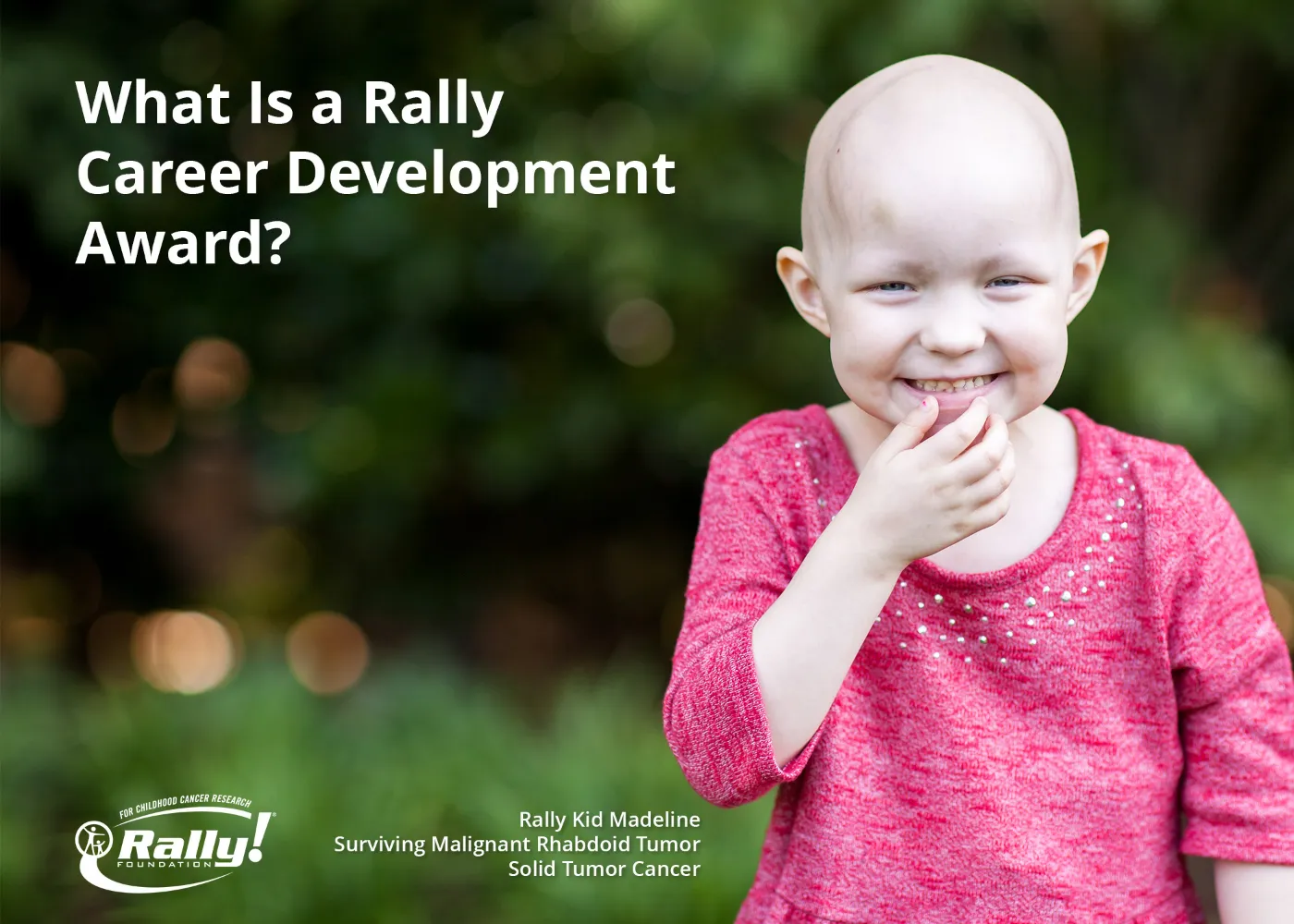

Career development awards are important. But why? Investigators in their first independent faculty appointment are at a critical career...

What exactly is a consortium? Let us explain. Rally Foundation for Childhood Cancer Research (Rally) defines a consortium as three or more...
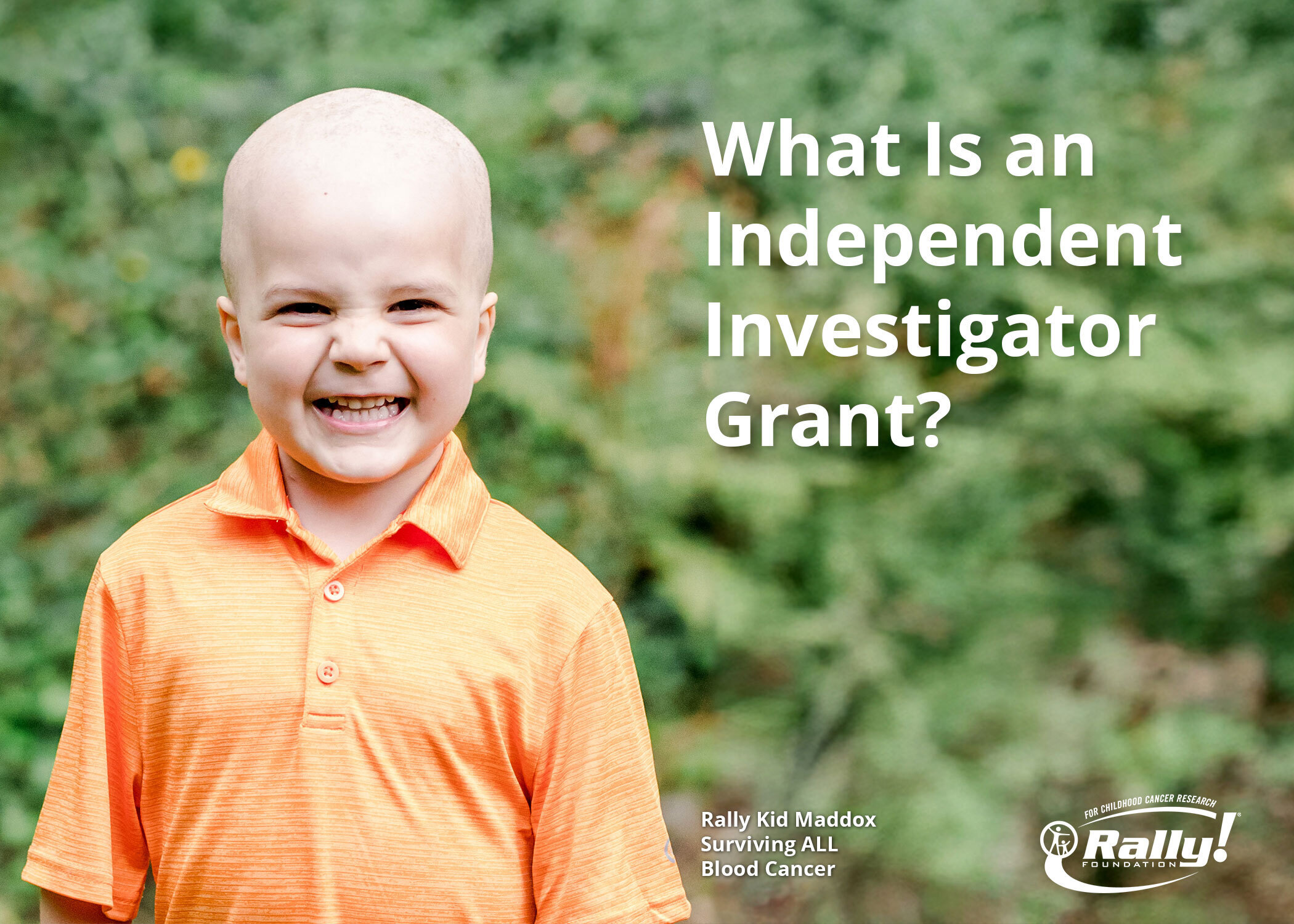
Independent Investigator Grants are awarded to principal investigators. Let’s begin by explaining the role of a principal investigator....
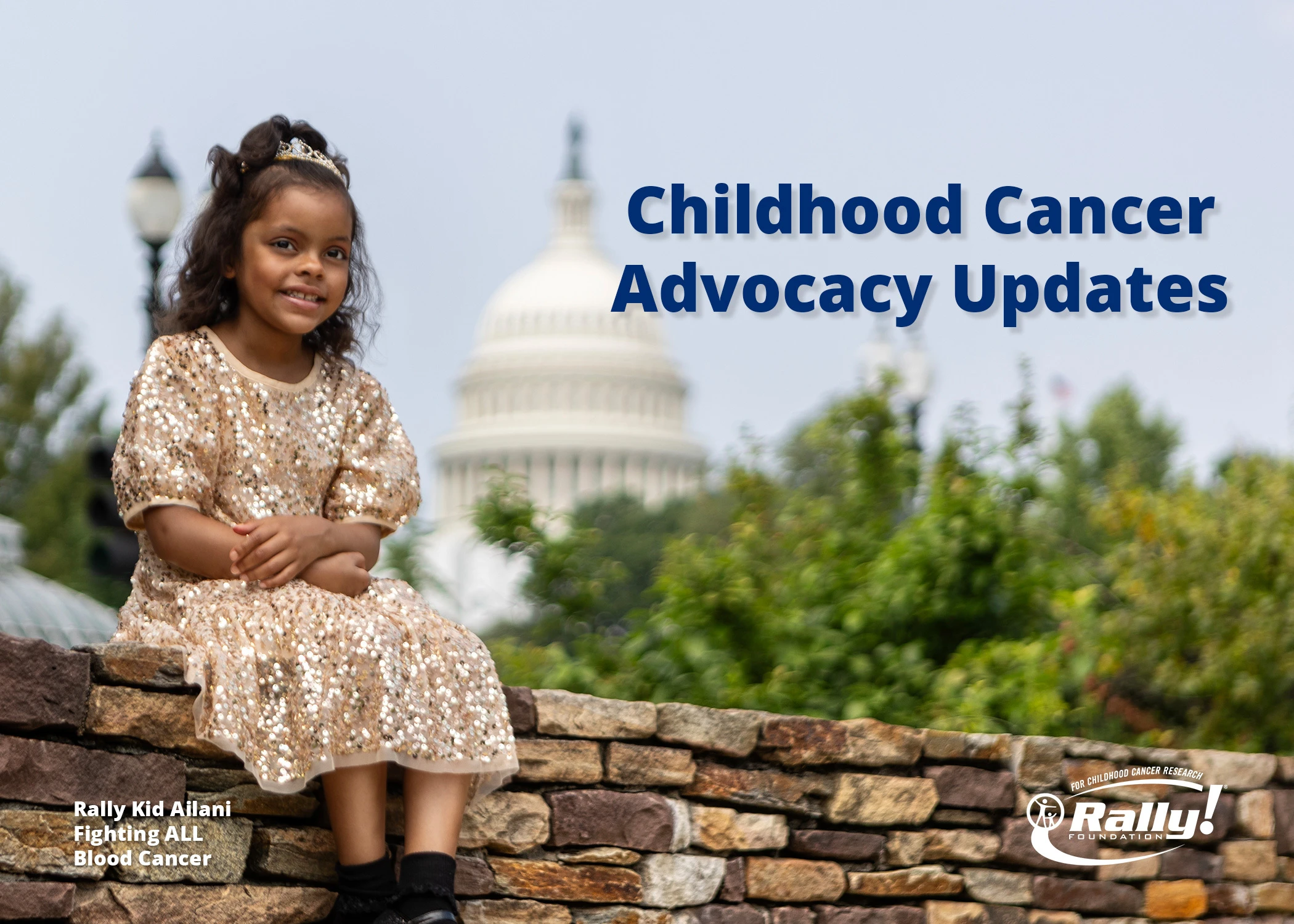
Your Voice Matters Now More Than Ever We were so close to an epic year for childhood cancer. We had six bills that were in the end of year...
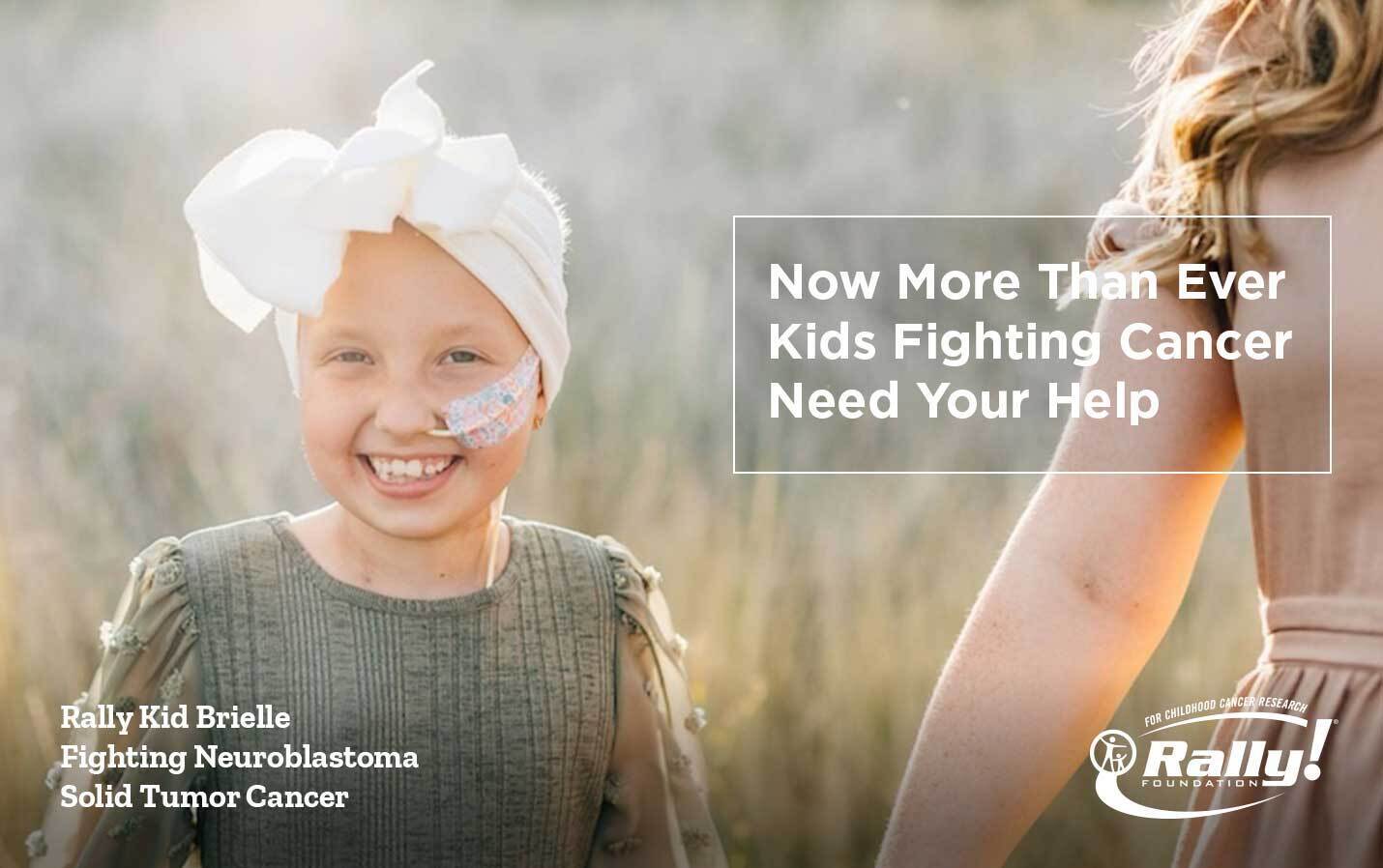
I love seeing pictures of our Rally Kids. But this one of 10-year-old #RallyKid Caroline hugging her older brother, Jack, hit me right in...

Hi, my name is Brielle. I’m 8-years-old, and I’ve been fighting cancer for as long as I can remember. I was 4 when I first got sick, and...

Brielle is a bright, beautiful 8-year-old who loves working on craft projects, dancing around the house and surrounding herself with all...
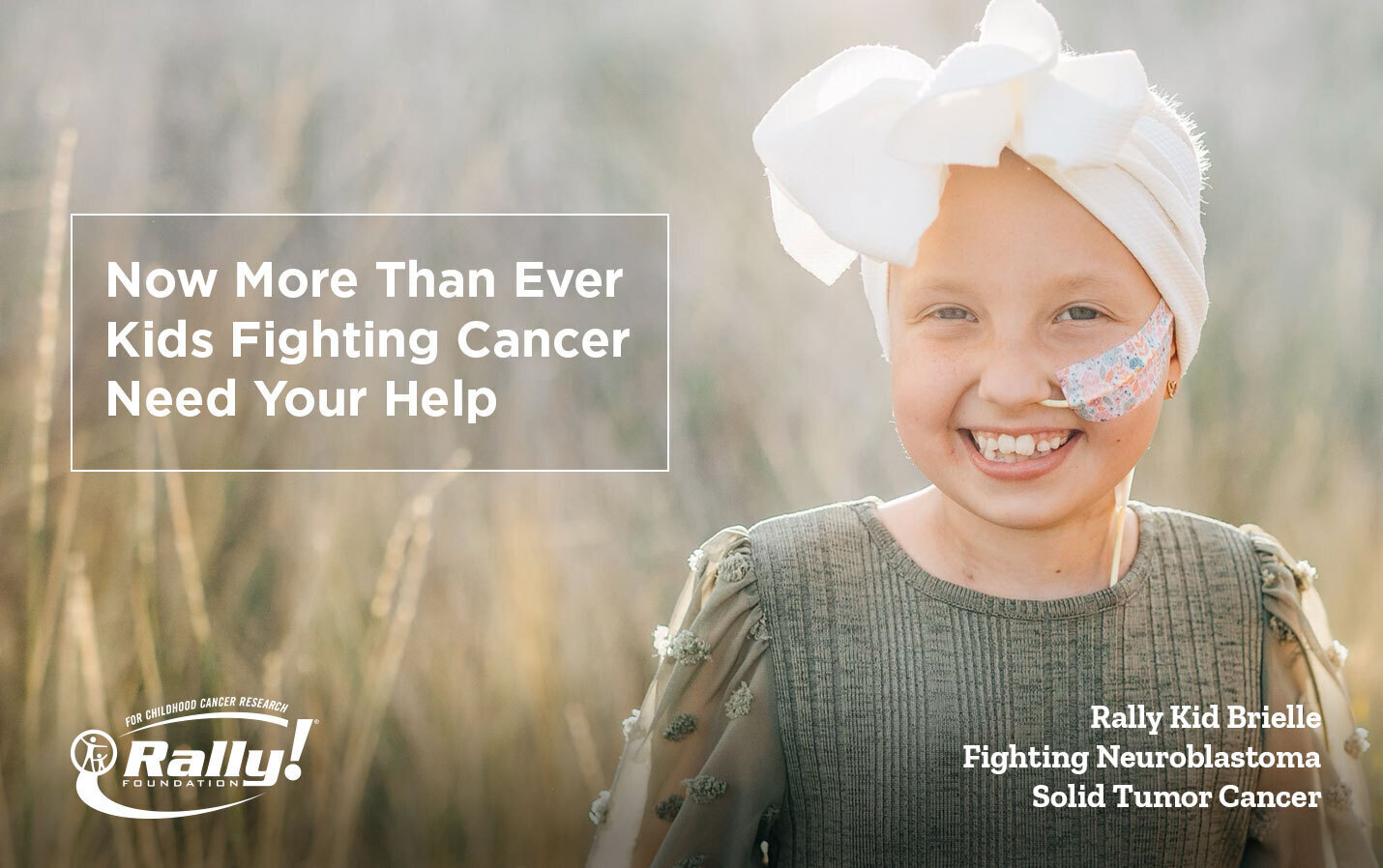
At just 4 years old, Brielle’s life took a turn no child should ever experience. What began as stomach pains and backaches quickly turned...
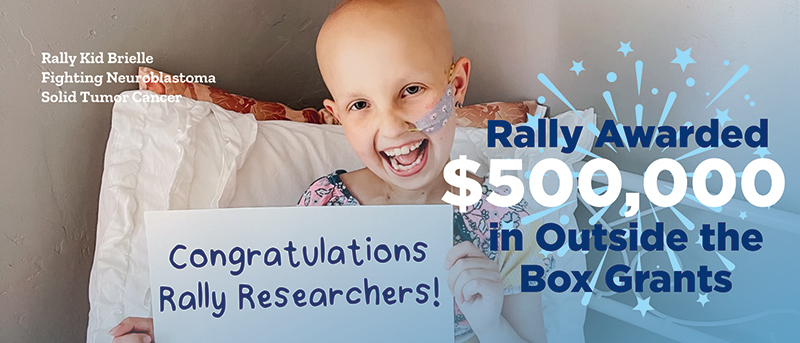
Rally Awards $500,000 in Novel Grants to Eight Childhood Cancer Researchers Rally Foundation for Childhood Cancer Research (Rally) awarded...
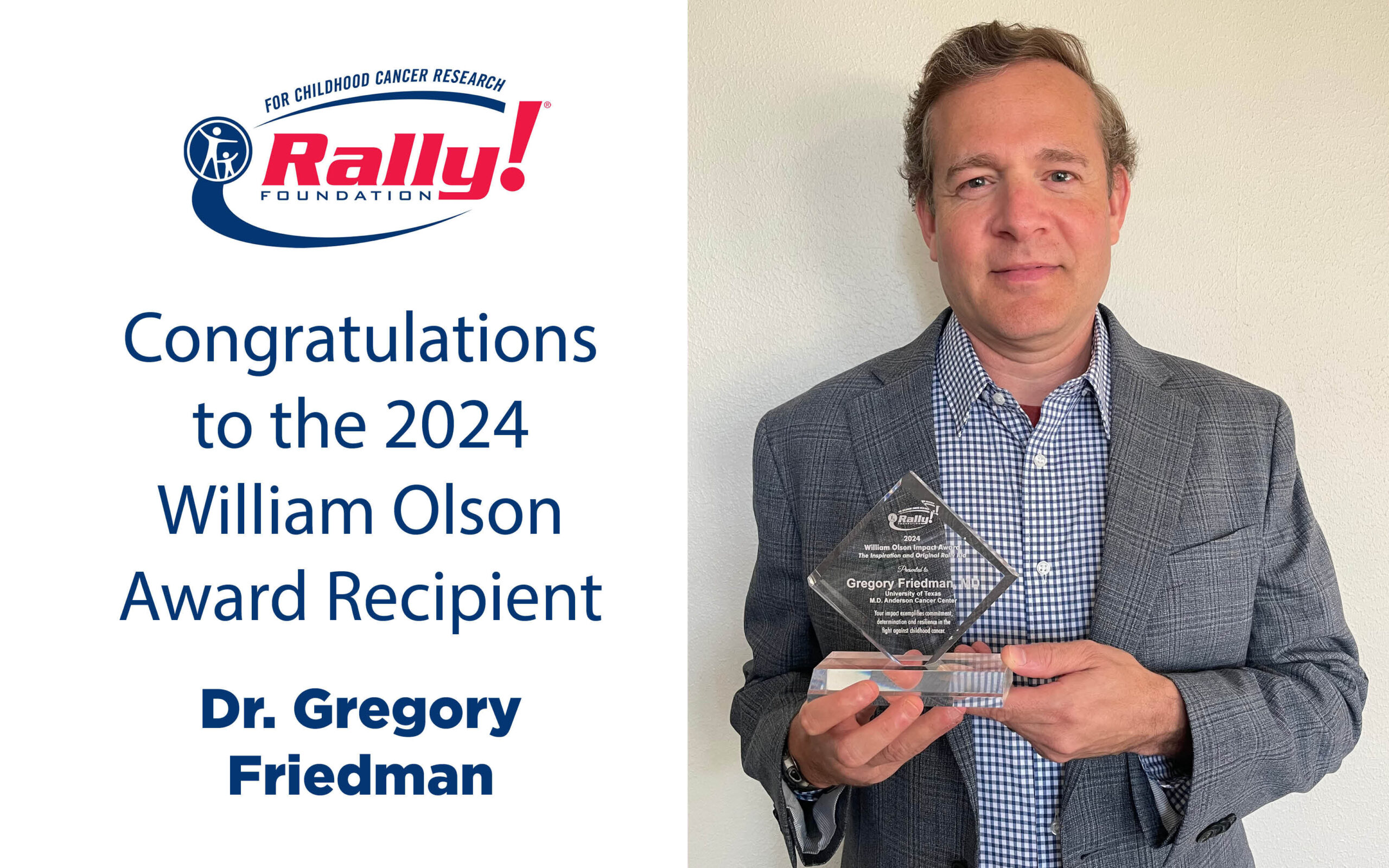
ATLANTA – Rally Foundation for Childhood Cancer Research recently announced their 2024 William Olson Impact Award winner, Dr. Gregory...
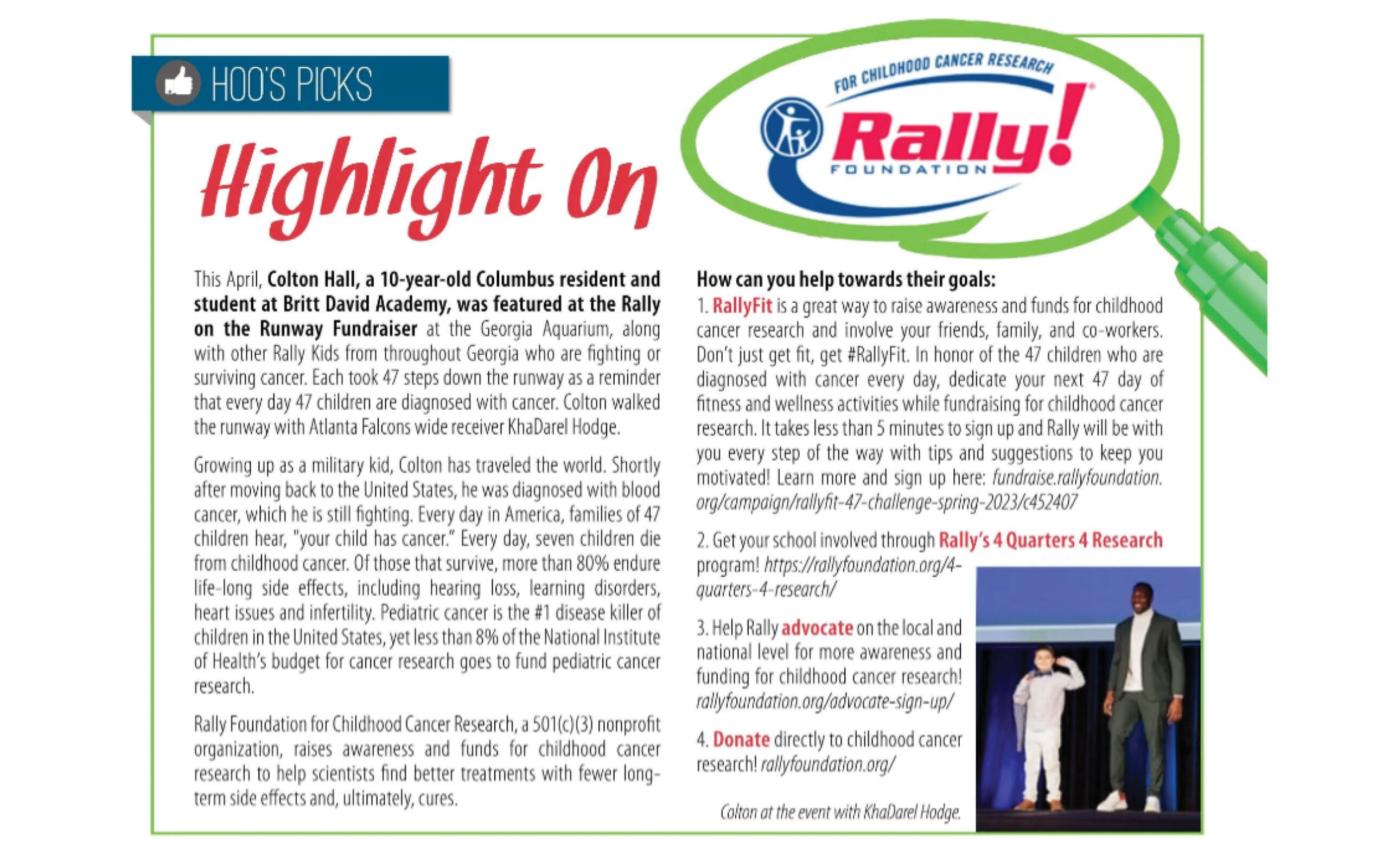
Family & Kids Chattahoochee Valley Magazine highlights Rally Kid Colton's experience at Atlanta's Rally On the Runway. Read about his...

Your business, no doubt, is always seeking ways to engage in the community, offer your employees opportunities to volunteer, and show your...
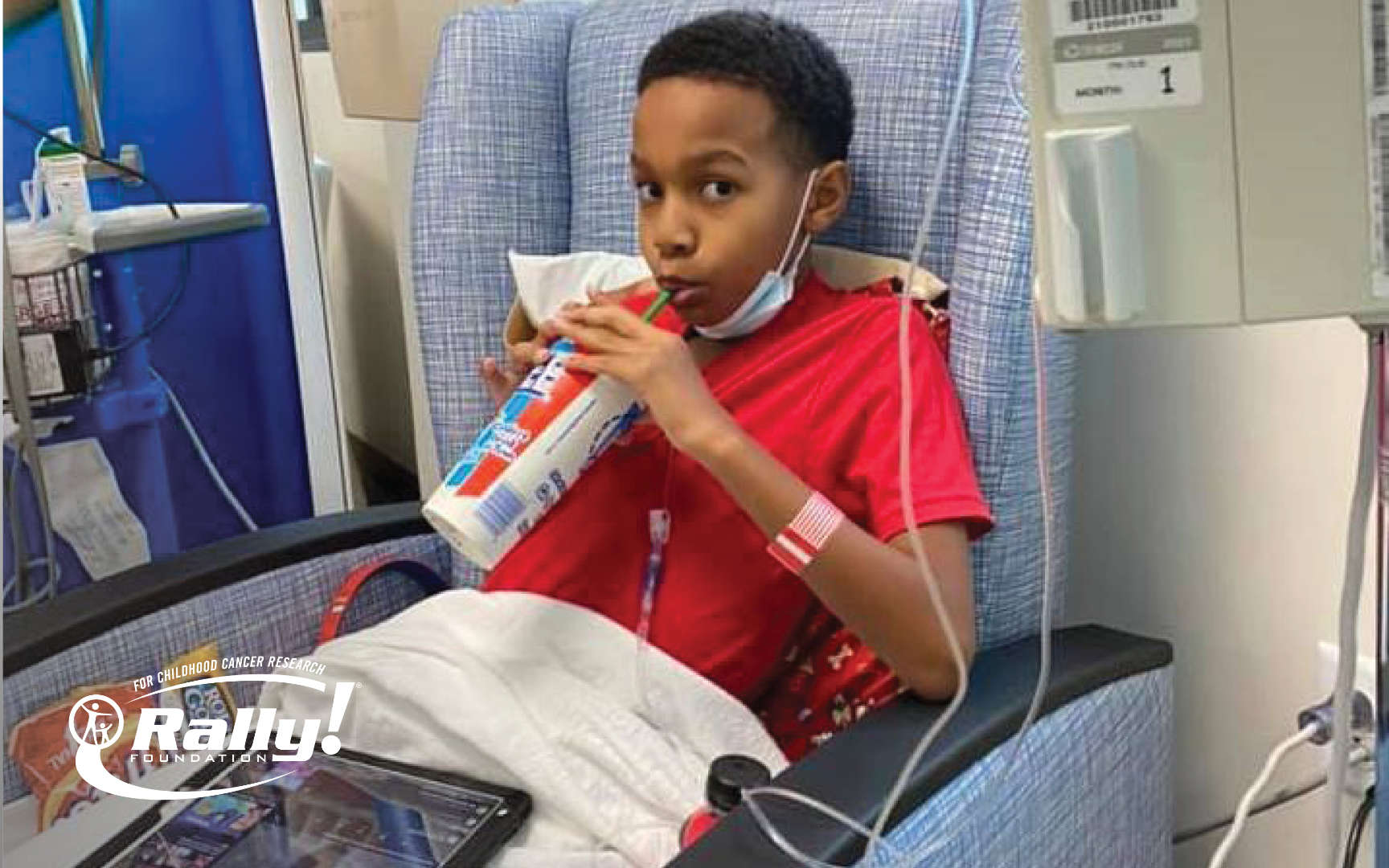
Your child has been diagnosed with cancer. The doctors have established a plan for treating this cancer. Part of this plan includes...
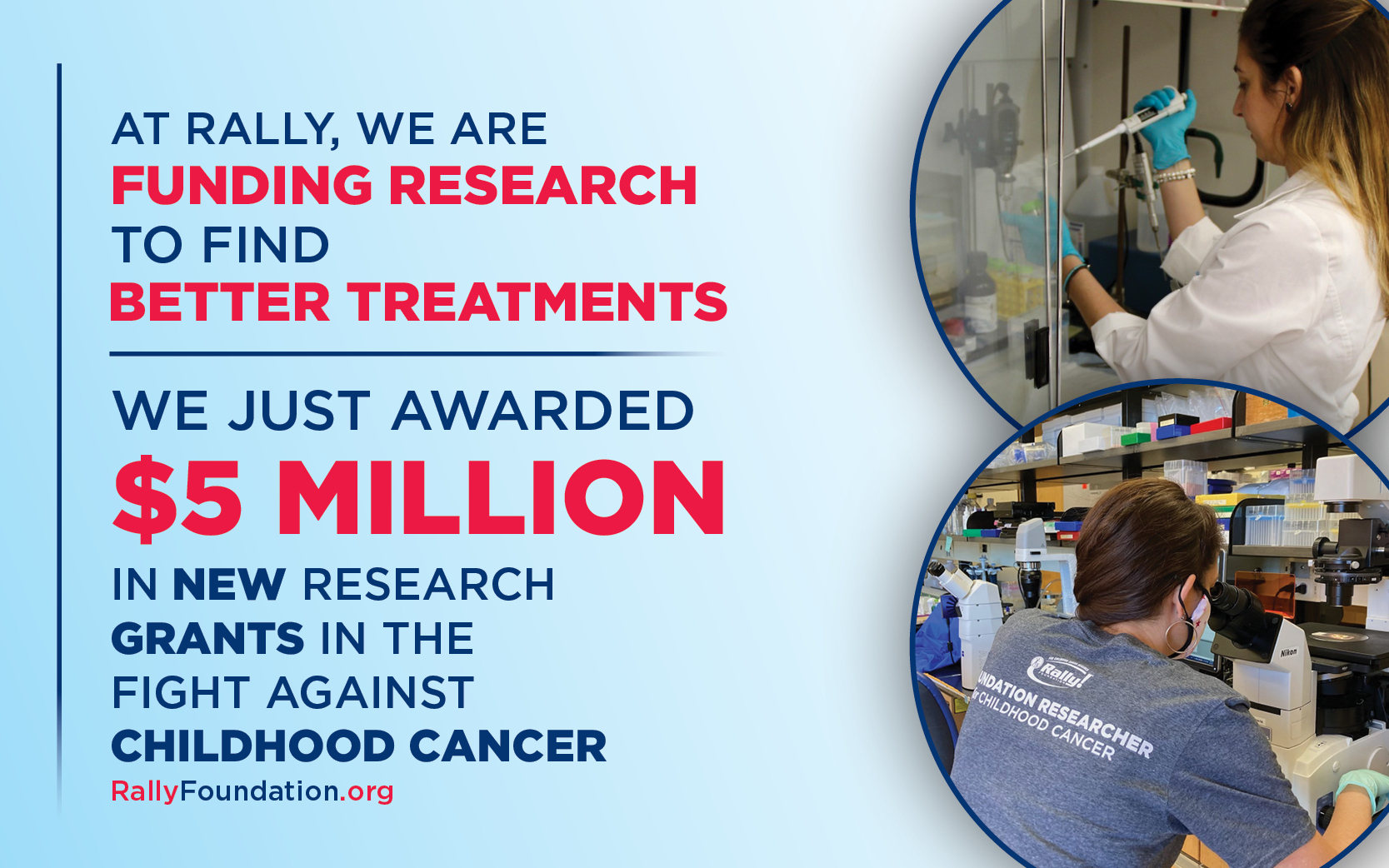
Rally Foundation for Childhood Cancer Research Awards $5M in 2024 In 2024, Rally Foundation for Childhood Cancer Research (Rally) will...
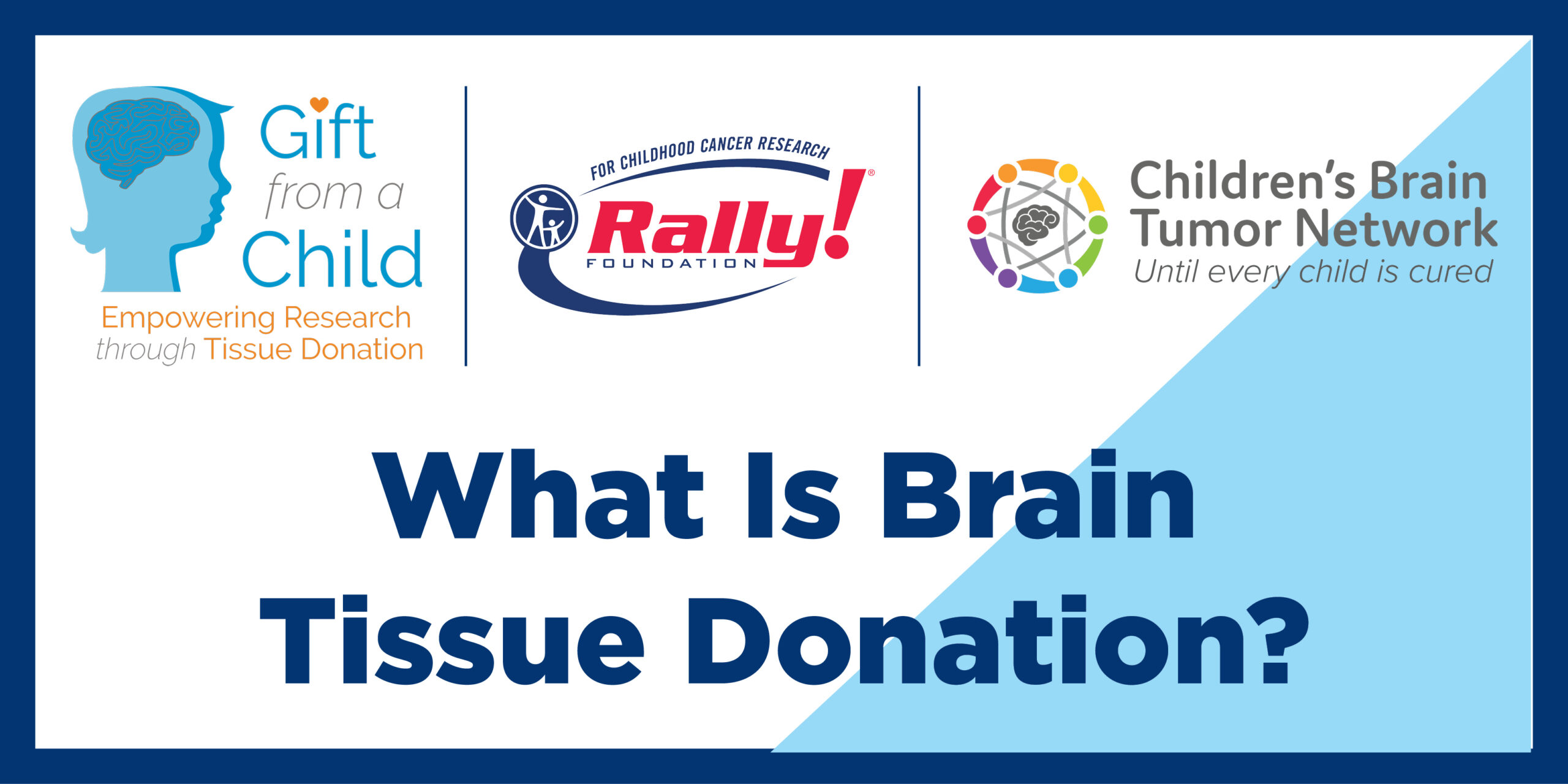
When your child is first diagnosed with brain cancer, you may be asked if you want to donate your child’s tumor tissue. A brain tissue...
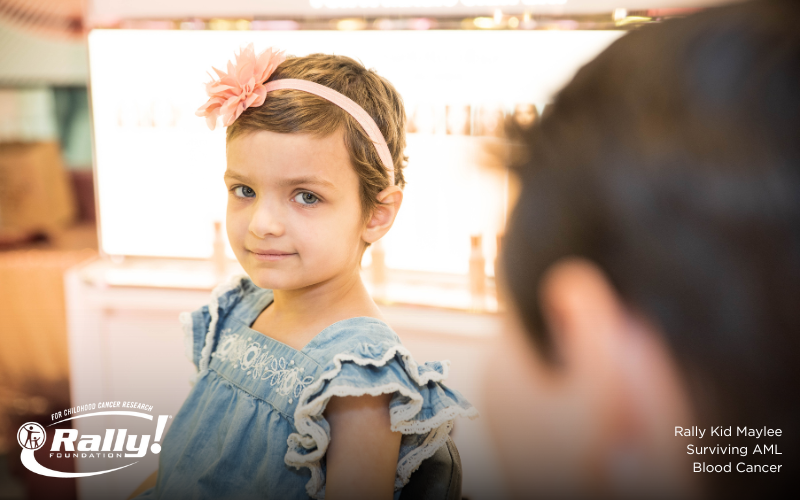
Acute myeloid leukemia (AML) is a blood cancer of the myeloid cells that normally form white blood cells, red blood cells or platelets. AML originates in the bone marrow, where the leukemia cells build up and overcrowd normal cells. The leukemia cells often move into the bloodstream fairly quickly. AML is the second most common form of childhood leukemia, after acute lymphoblastic leukemia (ALL). AML is much more common in adults versus children; the average age of diagnosis is 68. There are...
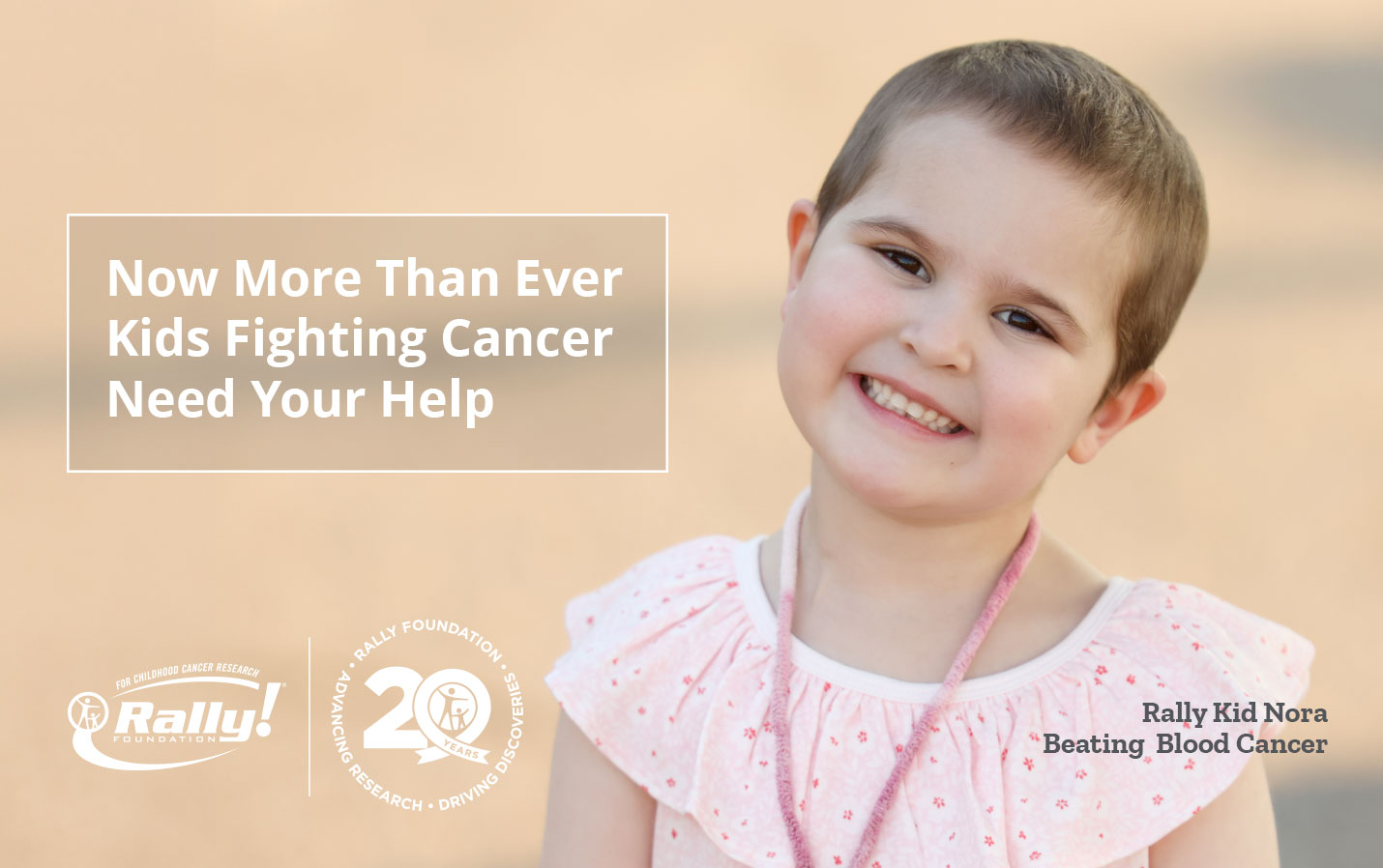
Twenty years ago, Rally was birthed from a prayer circle in a driveway. William Olson, a junior in high school, was battling brain cancer for the second time. A group of women gathered in the driveway three days a week for over a year to pray him through treatment. That is where I started learning about childhood cancer. It was awful. One day William had a horrific reaction to a transfusion and almost died. I looked at William’s mom and asked a simple question that changed everything: “What...
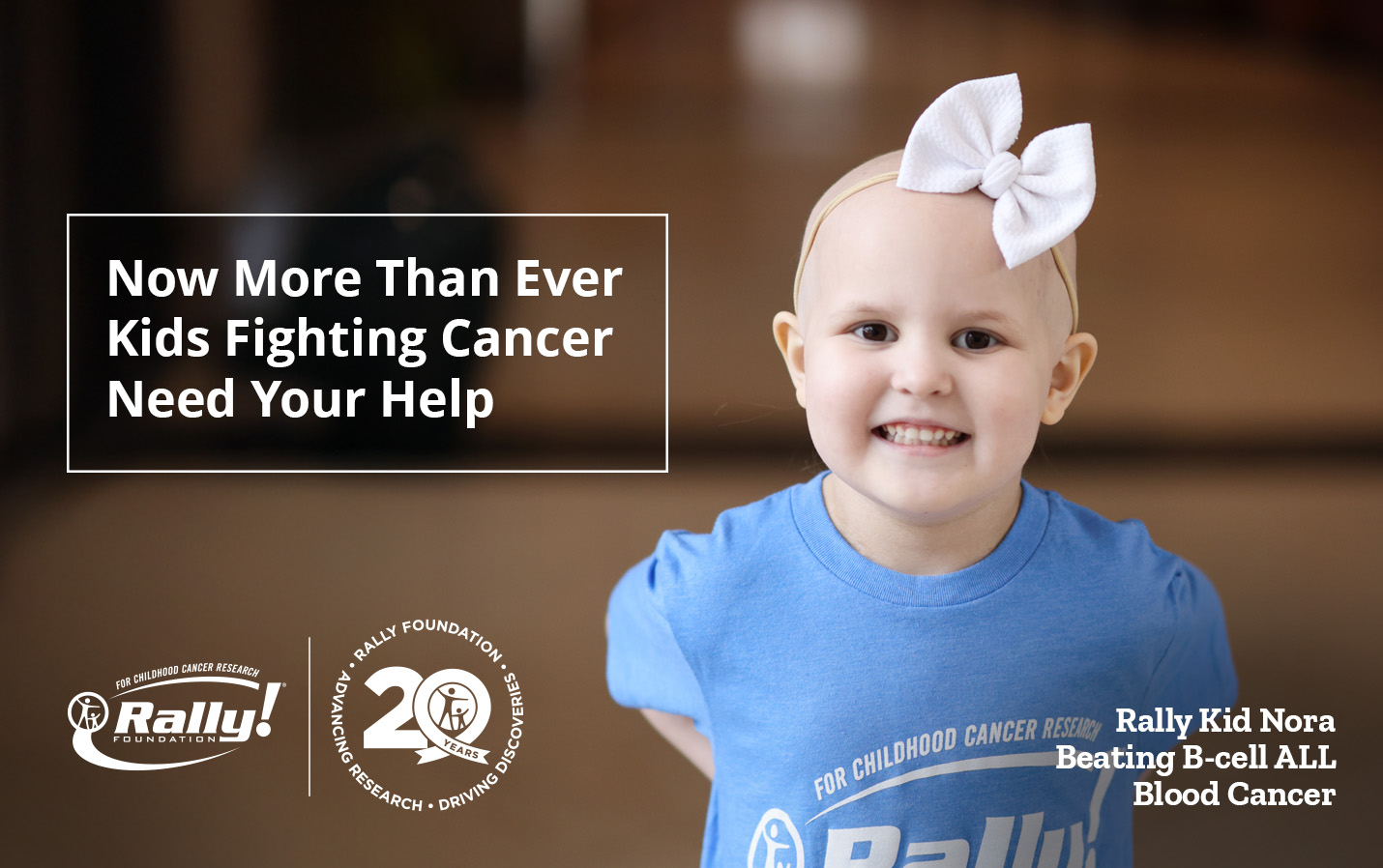
Hi! My name is Nora. I am 7 years old and I have a blood cancer called ALL — for a second time. The first time, I was 4 years old and I had to miss a lot of fun things because I was in the hospital. It wasn’t fun doing the treatments, and we had to go to another city for my medicines. After a while I got to go back to my dance and tumbling classes with my friends. I love playing with my brothers, too! But then the cancer came back. I was so sad. We have to go to a hospital in another town,...
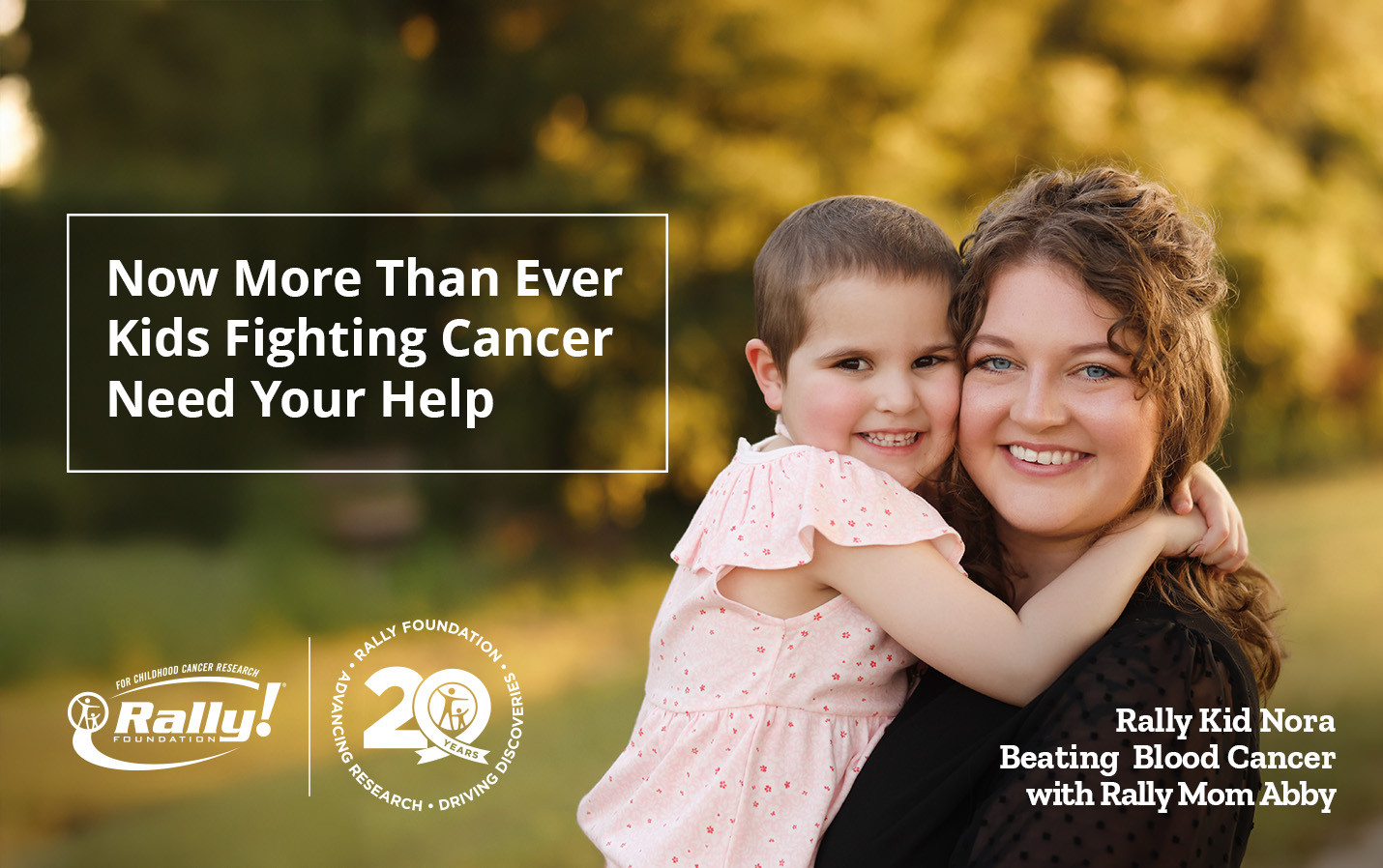
Dance, tumbling, playing outside and all things pink — these are the joys that light up Rally Kid Nora’s world. She loves to go to school and spend time with her two brothers, just like most kids her age. Nora isn’t like most kids, however. Her life and activities have been altered by childhood cancer. Nora was just 4 years old when her parents heard the words, “Your child has high-risk B-cell acute lymphoblastic leukemia (ALL).” Even after treatment began, the shock hadn’t worn off. “We were...
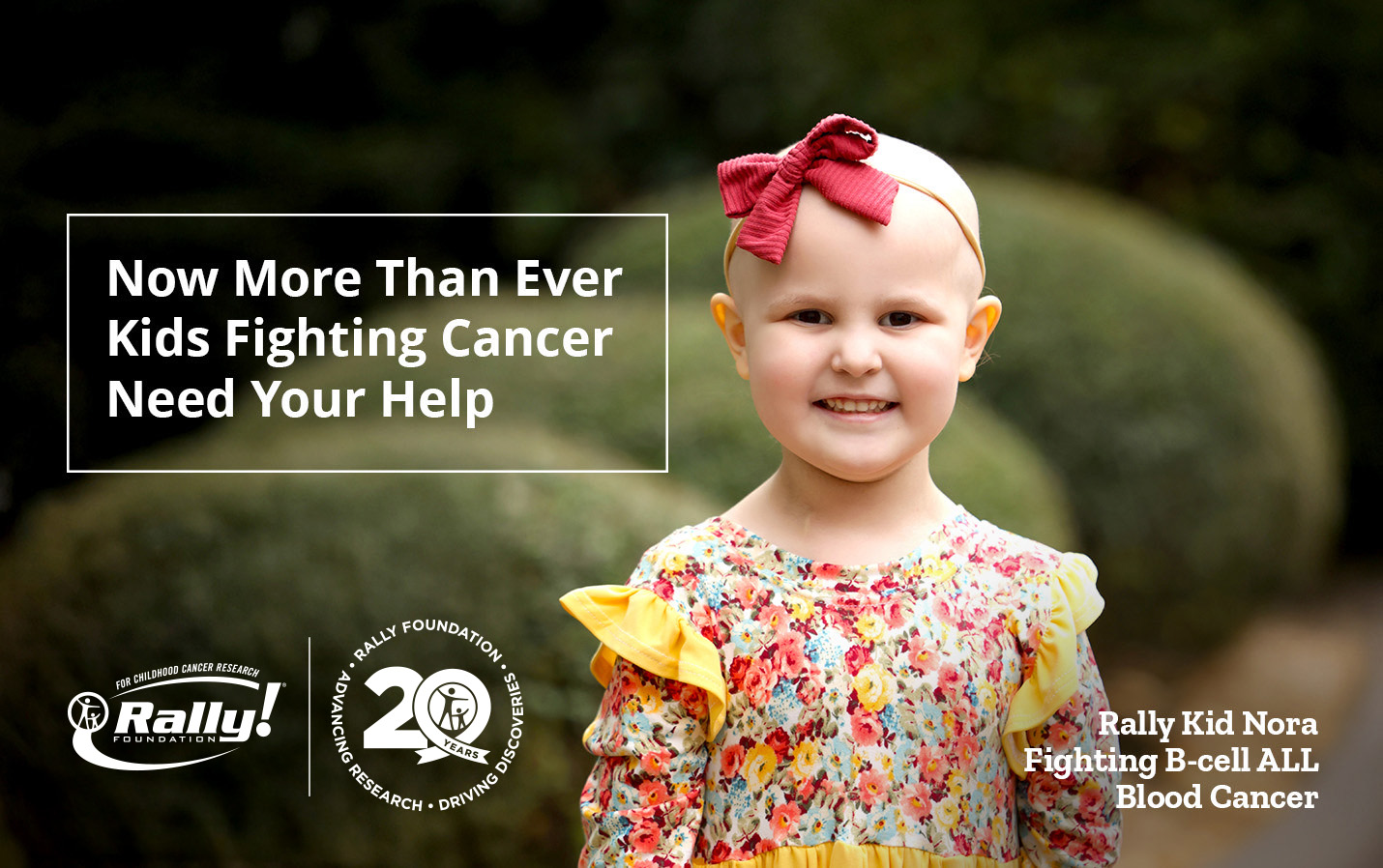
Like most 4-year-old girls, Nora was full of life — happy, energetic and always on the go. Nothing seemed out of the ordinary until her parents noticed a deep bruise on her shoulder blade. They didn’t think much of it at first, but then more bruises began to appear in places where they shouldn’t. Nora also started feeling unusually tired, which wasn’t typical for this spunky girl. Her parents chalked it up to being “Disney tired” from a recent magical family trip. But when Nora spiked a fever...
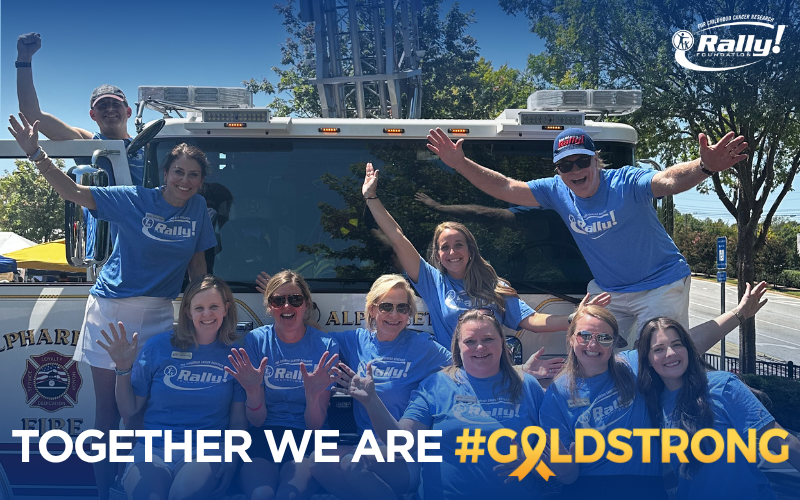
September is Childhood Cancer Awareness Month — and this year, Rally Foundation for Childhood Cancer Research is celebrating 20 years of impact! We have an incredible lineup of events and activities planned all month long to raise awareness and critical funds for childhood cancer research. Join us in making this milestone year one to remember. Check back often to see new events as they are added throughout September. Click the buttons below to see what’s happening nationwide and in specific...